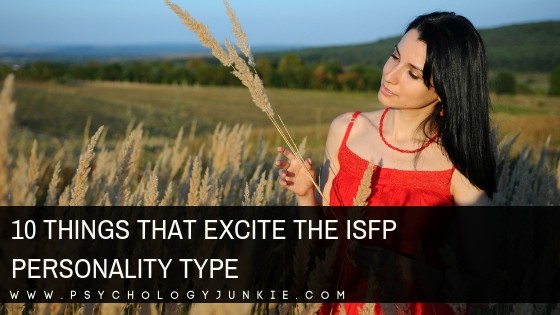Here’s the First Impression You Make, Based On Your Myers-Briggs® Personality Type
Do you ever wonder what kind of first impression you give people within a few minutes of meeting them? For many years I’ve been an avid fan of Linda V. Berens’s Interaction Styles. Each of the 16 personality types fits into one of four Interaction Styles and these styles can impact how we introduce ourselves, the energy we exude, and the kind of impression we make!
Combining these Interaction Styles with what I know about cognitive functions and my experiences as an MBTI® practitioner, I thought I’d write up this article that gives an overview of how each of the personality types tends to present themselves when they meet people for the first time. I hope you enjoy it!

DISCLAIMER: People aren’t divided into 16 identical “boxes,” operating at exactly the same wavelengths at all times. Your life experience, training, Enneagram type, career field, and dozens of other factors impact how you present yourself to the world. This article will merely scratch the surface of how you appear to people at first glance. Many varying factors can add nuance to this.
Not sure what your personality type is? Take our new personality questionnaire here. Or you can take the official MBTI® here.
Here’s the First Impression You Give, Based On Your Myers-Briggs® Personality Type
The ENFP
Interaction Style: Get-Things-Going™
Preferences: Extroversion/Intuition/Feeling/Perceiving
Energetic and friendly, you are a champion of individual expression. You know how to make people feel included and your warm, enthusiastic greeting tends to put people at ease. While some types keep their distance from new people, you’re usually someone who knows how to make eye contact, smile, and say a cheerful “Hello!”
Upon first meeting, most people think of you as being fun, friendly, open, energetic, and equipped with a good sense of humor. They also get the feeling that you’re a non-judgmental person who’s okay with quirkiness and spontaneity. Perhaps one of your most winning qualities is that many people feel like you won’t “judge them by their cover” or expect them to behave “by the book.”
The Stress Variation: If you’re feeling especially stressed, you may not seem as expressive and enthusiastic as usual. In fact, you may seem more introverted, scattered, and anxious. While you still want to make a good impression on new people, you may not be as open about how you feel or as excited to tell stories, crack jokes, or be in the middle of the commotion.
Read This Next: Your ENFP Personality Type and Your Enneagram Type
The ENTP
Interaction Style: Get-Things-Going™
Preferences: Extroversion/Intuition/Thinking/Perceiving
Quick-witted and clever, you tend to come off as an intellectual and someone who values knowledge. When people first meet you, they’re often impressed with your friendly, energetic greeting. Your open, expressive energy and direct eye contact give you an air of confidence and ease. You’re often seen as a good communicator who’s capable of charming people and teasing without coming across as awkward or cold-hearted.
The Stress Variation: If you’re feeling especially stressed, you may not seem as friendly and good-natured as usual. In fact, you may seem more introverted, distracted, and irritable. Your humor can become more cynical and blunt, and you’ll likely be overwhelmed by interactions more than energized by them.
Read This Next: The Top 7 Gift Ideas for ENTPs
The INFP
Interaction Style: Behind-the-Scenes™
Preferences: Introversion/Intuition/Feeling/Perceiving
Gentle-natured and kind, you’re someone who can make a big difference in groups without being the center of attention. You come across as warm and genuine when meeting people for the first time. Often, you prefer others to introduce themselves to you first. It can feel awkward for you to go up and immediately make introductions. You can do it if it’s required for work or if you’re eager to meet someone, but you are usually relieved when others do the greetings first.
When meeting people you tend to be quietly friendly and have an insightful, calm manner. Because of your reflective, introspective nature, you’re likely to pause before responding to people, making sure you’ve fully processed what they’ve said. When you do speak, you seem genuine, attentive, and empathetic. People come to appreciate your intuitive, patient, and unassuming nature because of how much it puts them at ease and creates space for understanding.
The Stress Factor: If you’re feeling extremely stressed, you may not seem as gentle and laid-back as usual. During high-stress moments, you can become more rigid, unexpressive, and closed off. You’ll try to avoid social situations and while you may still seem agreeable, you may appear “far away” emotionally.
Read This Next: Here’s Why INFPs and INTPs Get Misunderstood
The INTP
Interaction Style: Behind-the-Scenes™
Preferences: Introversion/Intuition/Feeling/Perceiving
Because of your introverted, introspective nature, you’re likely to come off as reserved and somewhat mysterious. You enjoy using your intellect to understand concepts and ideas in depth, so your first impression is that of a deep thinker who has insights into topics that others may not know about or fully appreciate. You like to keep the pace slow and calm when speaking to people, making intermittent eye contact and pausing to process what’s being said. You must have time to reflect on what people tell you and you appreciate it when others give you space to think and verbalize your thoughts. You absolutely hate it when people try to finish your sentences or talk over you. Overall, you seem friendly but reserved, and intelligent without appearing pompous.
The Stress Factor: If you’re feeling extremely stressed, your physical and psychological composure might be compromised. You’ll likely feel more scattered than thoughtful as anxiety overwhelms your ability to stay calm and collected. Your eyes may dart around as you speak, making uncertain eye contact with people as you process their questions or comments. While you may attempt to remain agreeable or calm, people will know that you are “far away” mentally, trying to figure things out and process what’s bothering you.
Read This Next: The Childhood Struggles of INTPs
The ENFJ
Interaction Style: In-Charge™
Preferences: Extroversion/Intuition/Feeling/Judging
You’re a natural when it comes to meeting new people, making engaging conversation, and keeping the energy high. In no time at all, you can find common ground with others and establish rapport through your sense of humor and charismatic friendliness. You tend to speak rapidly, with a lot of enthusiasm and momentum. While certain other types are more reserved, you tend to make direct eye contact and appear sure of yourself. It’s important for you to make the other person feel comfortable and really “seen.” By being as authentic as you can be, you hope to create a safe space for others to be genuine, however messy that may look or sound.
The Stress Factor: If you’re experiencing a great deal of stress, you may not seem as friendly and engaging as usual. Instead, you might appear more directing, demanding, or irritable. Because you naturally care about other people’s comfort, it can be frightening for you to feel this way. Some ENFJs simply “check out” because they don’t have the energy to be friendly but they also don’t want to hurt any of their relationships.
The ENTJ
Interaction Style: In-Charge™
Preferences: Extroversion/Intuition/Thinking/Judging
You are filled with a determined, commanding energy. People feel like things are handled and under control when they’re around you. While you’re outgoing and extroverted, you typically don’t like a lot of chit-chat and small-talk. Instead, you prefer to make direct eye contact and state exactly what you want or need. People see you as straightforward, blunt, and confident. You often have a sense of how to get things done and how to accomplish long-term goals. People often sense that you’re looking out for their best interest even when you’re critical of them.
The Stress Factor: If your stress levels are high, people may perceive you as being pushy or aggressive. You might take on too much responsibility and get overwhelmed at what needs to get done before deadlines are up. Your sense of urgency could become so extreme that you come across as impatient and demanding of others.
The INFJ
Interaction Style: Chart-the-Course™
Preferences: Introversion/Intuition/Feeling/Judging
Upon first meeting, people often find you calm yet focused. There’s a warmth and friendliness to your demeanor that helps put people at ease and encourages them to speak freely. Yet you also give people their space and are not prone to long bouts of chit-chat or small-talk. Your energy is focused and intense, as if you have a lot going on in your mind. People sometimes feel that you’re a mystery to them, but at the same time feel comfortable being in your presence. You have keen insight into individuals and can quickly see what’s needed emotionally in a situation.
The Stress Factor: If you’re experiencing high levels of stress, you may seem less warm and calm and more withdrawn, detached, and distracted. You may blurt out things more critically than is normal for you and have less patience for small-talk or conversation that detracts from your focus or goal.
Read This Next: A Look Inside the INFJ Mind
The INTJ
Interaction Style: Chart-the-Course™
Preferences: Introversion/Intuition/Thinking/Judging
People are often struck by your quiet, confident presence. You have a focused, intense energy and don’t mind taking charge when a direction needs to be mapped out. During social events, you’re likely to be in a responding rather than initiating role. You’re not likely to walk up to strangers and make a lot of chit-chat, but if people come and speak to you then you will be polite and straightforward. People sense that there is a strong “inner world” inside of you —that whatever’s happening in the moment isn’t as important to you as whatever’s occurring inside your mind. There’s often a strong sense of people feeling like they can’t quite get to know you or that there’s more going on with you than meets the eye.
The Stress Factor: If your stress levels are high, people may perceive you as being cold and aloof. You might appear irritable and short-tempered and may have a strong desire to be left alone. You might seem more closed off or defensive than you normally would.
Read This Next: 10 Things That Excite the INTJ
The ESFP
Interaction Style: Get-Things-Going™
Preferences: Extroversion/Sensing/Feeling/Perceiving
You have a warm, inviting presence that draws people in. Your energy is upbeat and friendly and you know how to create a fun, casual atmosphere. Because of this, you can sometimes come across as overly bubbly or easy-going to those who prefer a more subdued, formal social style. That said, the spring in your step and your good sense of humor usually give you an aura of likability and charm. Most people see you as energetic, expressive, and lively – as if you’re the person to be around when all the excitement happens.
The Stress Factor: If you’re experiencing high levels of stress, you may become more scattered, anxious, and abrupt. Your sense of humor might be more sarcastic than usual and your energy might seem more disjointed. Your usual optimism might be replaced with negativity and apathy.
The ESTP
Interaction Style: In-Charge™
Preferences: Extroversion/Sensing/Thinking/Perceiving
Whether it’s a party, business meeting, or social engagement, you have no problem taking the lead if things are lacking direction or momentum. You’re quick-witted and confident in your actions and don’t mind being looked at as an authority figure. People are drawn to your go-getter attitude and the focus with which you get things done. You exude competence but can come across as “pumped up” or too intense in a low-key environment. But your charming sense of humor and ability to “read” people fairly easily gives you a leg up in motivating people to take your lead.
The Stress Factor: If stress levels are high, you might appear edgy and impatient. You are very action-oriented and may struggle with sitting idle or in silence. If there is a lot of micro-managing, meaningless chit-chat, or sedentary behavior, you’re likely to just get up and go do something on your own.
The ISFP
Interaction Style: Behind-the-Scenes™
Preferences: Introversion/Sensing/Feeling/Perceiving
Your preferred environment lets you bring your natural gifts as a creative thinker to the forefront. You may avoid crowds and busy social scenes in favor of a more intimate, low-key setting. People see you as laid-back but insightful, observing more than anyone realizes. You’re an excellent listener and people appreciate your sincere, thoughtful responses. Information is collected through quiet observation and reflection – more than through direct questioning. People just sense that there’s some sort of creativity or artistic vision inside of you.
The Stress Factor: When stressed, you may become more emotionally sensitive and withdrawn than usual. Because you hate to feel vulnerable when stressed, you may just quiet down and become difficult to read. While you may outwardly maintain some composure and agreeableness, you’ll seem distant and detached – as if you just can’t wait to get away from whatever social situation you’re stuck in.
The ISTP
Interaction Style: Chart-the-Course™
Preferences: Introversion/Sensing/Thinking/Perceiving
Your quiet presence and focused demeanor evoke an aura of mystery and intrigue. While you come across as casual, there’s a deliberateness to your energy – as if you’re analyzing something intensely and keenly aware of everything around you. You’re not much for idle chit-chat but can make a lasting impression through your wry wit or logical, down-to-earth perspective. People often find you to be an enigma at first, but over time learn to appreciate your calm, pragmatic energy.
The Stress Factor: Under intense pressure, you may appear short-tempered and intense. You tend to withdraw socially when stressed – which only increases the sense of mystery people have about you. Emotionally intense conversations can tire you out and quickly deplete your energy.
The ESFJ
Interaction Style: Get-things-Going™
Preferences: Extroversion/Sensing/Feeling/Judging
A people-person in every sense of the word, you live for social interaction. People usually find you disarming, expressive, energetic, and warm. You value personal connections and your eye contact, sense of humor, and attentive disposition make people feel important and appreciated. Many people find it easy to talk to you; there are rarely “awkward silences” and you like to acknowledge and validate people’s feelings. You like elements of storytelling and often imbue your words with reflections from your past.
The Stress Factor: Under high-stress, your warmth and enthusiasm may give way to occasional moodiness and frustration. You may become more critical, nitpicky, and prone to emotional outbursts. At other times, you may simply feel scattered and panicky; torn between wanting to maintain positive relations and also cope with overwhelming negative feelings.
The ESTJ
Interaction Style: In-Charge™
Preferences: Extroversion/Sensing/Thinking/Judging
Your social presence is strong. You’re a natural leader, decisively taking charge in any situation that lacks direction. You tend to be pragmatic and straightforward with everyone, even when it comes to personal matters. People find you down-to-earth and authentic. “What you see is what you get” is probably a way that you would describe yourself. Because you prefer objectivity, you aren’t often swayed by emotional appeals. Your level head gives people the tendency to look up to you for your sound judgment and practical thinking. You may come across as overly blunt or demanding but underneath, you’re dependable and caring.
The Stress Factor: Emotional conversations drain your energy quickly. When stressed, you may appear serious, rigid, and unapproachable. You may also lash out at others when feeling overwhelmed. Emotionally, you may feel stuck between wanting to be alone and craving someone to vent to. Mostly, you want people to toe the line and do their part and you get frustrated when the people around you seem lazy, incompetent, or idle when a job needs to be done.
The ISFJ
Interaction Style: Behind-the-Scenes™
Preferences: Introversion/Sensing/Feeling/Judging
You have a warm and soothing presence, which helps people to relax and feel safe. You don’t seek attention but prefer deep one-on-one relationships. People feel liberated when they’re around you because they don’t have to worry about being judged or competed against. You’re a good listener who recognizes people’s experiences and emotions delicately. People see you as polite, approachable, and down-to-earth.
The Stress Factor: During moments of high stress, you may be less warm and empathetic than usual. You need quiet time alone to re-charge your batteries. You may tune out of things or find yourself worrying about dozens of ominous possibilities. Social interactions can be strained during this time as you find it increasingly difficult to stay “checked in” to what’s happening around you.
Read This Next: What It Means to be an ISFJ Personality Type
The ISTJ
Interaction Style: Chart-the-Course™
Preferences: Introversion/Sensing/Thinking/Judging
You’re usually a natural voice of reason on any team. At first glance, people tend to find you serious but friendly, calm, and insightful. Because of your steady work ethic and attention to detail, people may rely on you as a bastion of stability and common sense. You’re cordial with people but everyone also knows where they stand with you. Because you give off a somewhat formal air, it’s easy for others to respect your confidence and expertise. You consider the practical implications before making any moves, which gives people confidence that things will be handled in a logical manner.
The Stress Factor: When stressed, you may find yourself tired or overwhelmed by feelings of inadequacy. Emotions in general stress you out because they make it difficult to pinpoint what’s important in a given situation. You may be less responsive in conversations and blunter than usual, particularly when you feel like others aren’t meeting your standards. You may worry about ominous possibilities and feel an urgent need to make movement towards a goal.
What Are Your Thoughts?
Did you enjoy this article? Do you have any experiences or insights to add? Share your thoughts with other readers in the comments! Keep in mind, I monitor comments so that nobody is being bullied or spammed. Sometimes it takes me a day or two to approve comments.
Find out more about your personality type in our eBooks, Discovering You: Unlocking the Power of Personality Type, The INFJ – Understanding the Mystic, The INTJ – Understanding the Strategist, and The INFP – Understanding the Dreamer. You can also connect with me via Facebook, Instagram, or Twitter!












relatable as always! great post.
This article could have been better. It reads more like those written by horoscope writers than actual science.